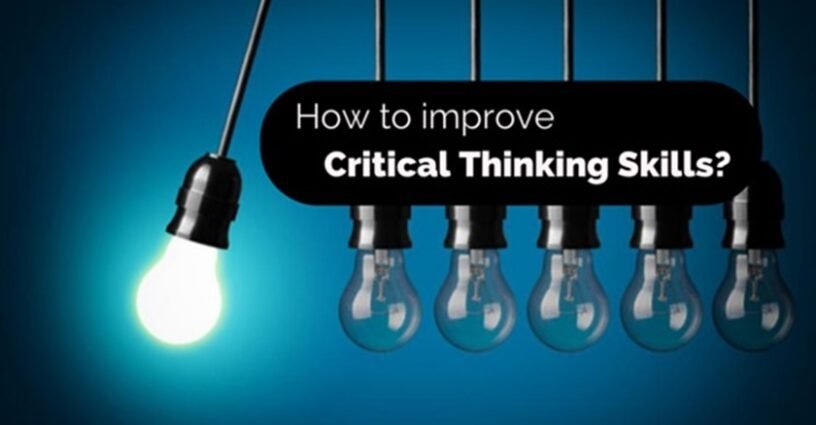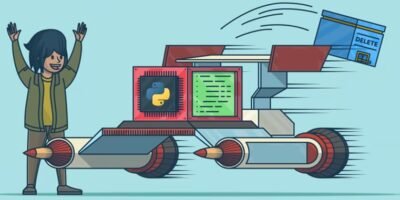Table of Contents
Introduction
In today’s ever-changing business landscape, the ability to think critically is no longer a luxury, it’s a necessity. Critical thinking empowers employees to analyze situations, solve problems effectively, and make sound decisions that drive results. But how can you, as an individual or a leader, hone these valuable skills in the workplace?
What is Critical Thinking?
Critical thinking is the intellectually disciplined process of actively and skillfully conceptualizing, applying, analyzing, synthesizing, and evaluating information to reach well-reasoned conclusions. It’s about going beyond the surface level, questioning assumptions, and considering all angles before forming an opinion or taking action.
Real-Life Examples of Critical Thinking at Work:
- Marketing Manager: Imagine a marketing manager tasked with revamping a low-performing ad campaign. A critical thinker wouldn’t just throw new creative at the problem. They’d analyze data to understand target audience preferences, research competitor strategies, and consider budget constraints before developing a data-driven campaign strategy.
- Sales Representative: A critical thinking salesperson wouldn’t simply recite a script. They’d actively listen to customer needs, identify underlying problems, and tailor their pitch to present solutions that resonate with the client’s specific situation.
Boosting Your Critical Thinking Muscles
Here are some practical steps you can take to improve critical thinking in your workplace:
- Embrace Curiosity: Ask questions! Don’t be afraid to challenge the status quo and seek clarification on assumptions. A curious mind is the foundation of critical thinking.
- Gather Diverse Perspectives: Don’t operate in an echo chamber. Actively seek out different viewpoints and encourage healthy debate within teams. This exposes you to blind spots and fosters a more well-rounded understanding of issues.
- Become an Information Detective: In today’s information age, critical evaluation of data is paramount. Be discerning about the sources you trust, and develop the ability to identify bias and logical fallacies in arguments.
- Practice Makes Progress: Challenge yourself to think critically in everyday situations. When faced with a problem, don’t jump to solutions. Instead, frame the problem clearly, analyze the causes, and consider alternative approaches.
- Sharpen Your Saw: Lifelong learning is key to maintaining a sharp critical thinking edge. Read books and articles on logic and reasoning, and participate in workshops or online courses dedicated to critical thinking development.
The Benefits of a Critical Thinking Culture
By fostering a culture of critical thinking, organizations reap significant rewards:
- Enhanced Problem-Solving: Critical thinkers can identify the root cause of problems and develop innovative solutions that lead to long-term success.
- Improved Decision-Making: Well-considered decisions based on sound analysis minimize costly mistakes and lead to better outcomes.
- Increased Innovation: Critical thinking encourages employees to challenge assumptions and explore new possibilities, leading to a more innovative and adaptable workplace.
Further Your Critical Thinking Journey: Recommended Reads
Thinking, Fast and Slow by Daniel Kahneman This book explores the two systems that drive our thinking: System 1, the fast, intuitive system, and System 2, the slower, more deliberative system. Kahneman shows how these systems can lead to errors in judgment and provides strategies for making better decisions.
Sapiens: A Brief History of Humankind by Yuval Noah Harari This book provides a broad overview of human history, from our origins as hunter-gatherers to the present day. Harari challenges some of our long-held beliefs about human nature and asks us to think critically about the challenges facing our species in the 21st century.
Bullshit Jobs by David Graeber This book examines the rise of meaningless jobs in the modern economy. Graeber argues that these jobs not only make workers unhappy but also stifle creativity and innovation. Bullshit Jobs is a thought-provoking read that will make you think critically about the nature of work.
Factfulness: Ten Reasons We’re Wrong About the World—and Why Things Are Better Than You Think by Hans Rosling This book challenges our negative biases about the world and shows how progress is often being made in areas that we think are getting worse. Rosling provides ten reasons why we’re wrong about the world, and shows how a fact-based worldview can help
Conclusion
Critical thinking is a skill that benefits both individuals and organizations. By actively practicing the steps outlined above, you can become a more valuable asset in your workplace and contribute to a culture of innovation and success. Remember, critical thinking is a journey, not a destination. The more you challenge yourself to think deeply, the more effective and adaptable you’ll become in the ever-evolving world of work.




1 Pingback